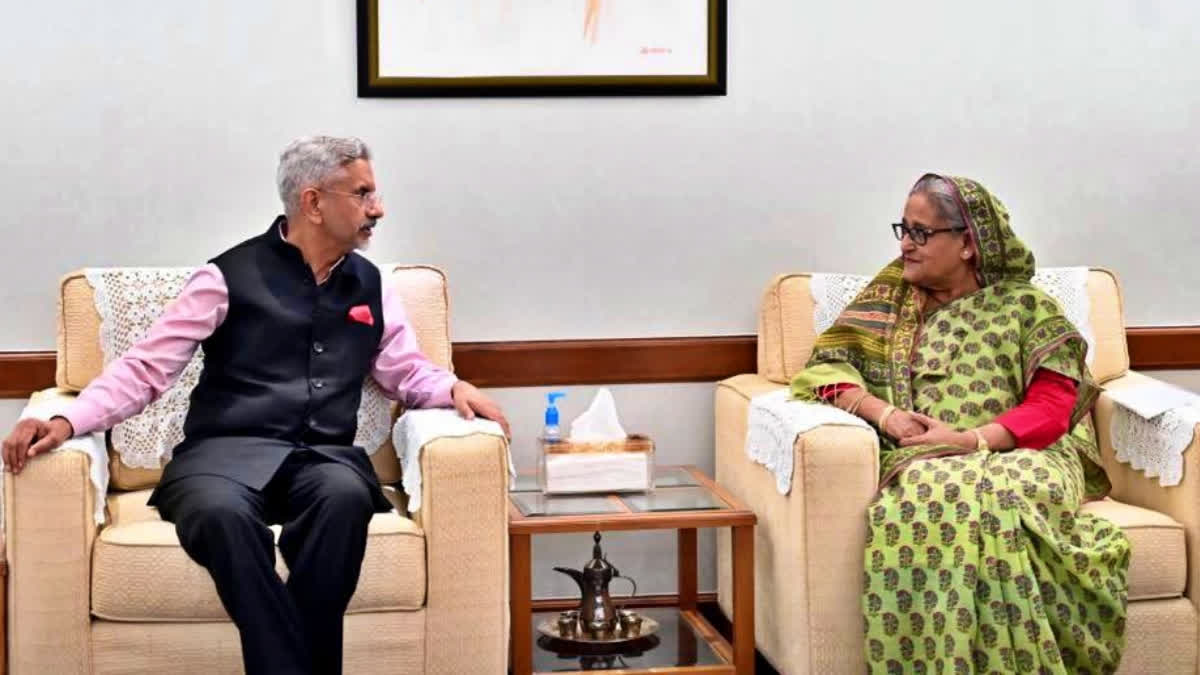New Delhi: With the Parliamentary Standing Committee on External Affairs recommending that the Teesta water-sharing issue be resolved with Bangladesh, indications are that New Delhi and Dhaka are close to ending this vexed decades-long problem.
“The Committee is aware of the long outstanding issue between India and Bangladesh on sharing of Teesta river water and desires that this important issue be worked out at the earliest for improved bilateral relations with Bangladesh,” the Committee said in its report on India’s Neighbourhood First Policy.
"The Committee also urges the (External Affairs) Ministry to initiate meaningful dialogues with Bangladesh on a regular basis to arrive at a consensus in the matter and the progress and outcome may be informed to the committee on the issue of pending disputes between India and Bangladesh and the fresh initiatives and meaningful dialogues proposed to be taken to resolve such disputes."
Bangladesh has welcomed this recommendation describing it as “encouraging and meaningful”. “It is surely encouraging and meaningful; especially MPs from all political parties of India are in this committee,” Seheli Sabrin, spokesperson of the Bangladesh Ministry of Foreign Affairs, said at a media briefing. “That is why such a recommendation generated hope among us."
India and Bangladesh were close to reaching a deal on this issue during then Prime Minister Manmohan Singh’s visit to Dhaka in 2011. But West Bengal Chief Minister Mamata Banerjee did not accompany Singh and the deal could not be signed at the last moment. Banerjee is opposed to the deal as she is of the view that the water of the Teesta River is decreasing drastically. The river facilitates irrigation of 1.20 lakh hectares of highly arable land in northern West Bengal.
Also read: 'India-Bangladesh friendship pipeline to enhance cooperation in energy security': PM Modi
But what is different this time around is that the Committee that made the recommendation has Abhishek Banerjee, general secretary of the TMC and nephew of Mamata Banerjee, as one of its members.
“The attendance of Abshiskek Banerjee is significant,” Ayanagsha Maitra, journalist and Fellow of the Dhaka-based think tank Centre for Governance Studies, told ETV Bharat. “A long-time dispute with one of the most amiable nations could be an advantage for our adversaries in the neighbourhood. If the TMC government agrees to give its nod, it should be an enabling factor for the deal.”
However, Sheikh Rokon, Secretary-General of the Dhaka-based civil society organization Riverine People, said that he is still not optimistic as it is a long-pending issue.“Discussion on the Teesta started in 1953 when Bangladesh was a part of Pakistan,” Rokon said. “There was also an ad hoc treaty on Teesta river water sharing in 1983.”
He said that both Manmohan Singh and Prime Minister Narendra Modi have been repeatedly saying that India is sincerely working on the issue but due to opposition from West Bengal, the deal could not be clinched. “The parliamentary committee is definitely a positive sign but it is not a mover,” Rokon said. “The treaty is ready. We just need the signatures from the two sides.”
He also pointed out that both India and Bangladesh are headed for general elections and the committee’s recommendation might be a bid to send a positive sign to the electorate. The Teesta River's flow into Bangladesh during the lean season is the main point of contention between India and Bangladesh. Hundreds of thousands of people's livelihoods are impacted by the river, which drains 2,800 sq km of Bangladesh and flows through the floodplains of Sikkim.
Out of its total length of 414 km, the Teesta River flows for about 151 km through Sikkim, nearly 142 km through West Bengal, and the final 121 km through Bangladesh. The river had an average historical flow of 7932.01 cubic metres per second (cumec) maximum and 283.28 cumec minimum at Dalia, upstream of the Teesta Barrage in Bangladesh, according to a report in the Bangladesh newspaper The Daily Star.
According to Maitra, the issue should be settled at the earliest from the Indian side as China is investing heavily in infrastructure in Bangladesh. Bangladesh is likely to receive an almost $1-billion loan from China for a comprehensive management and restoration project on the Teesta River. The management and restoration project is aimed at managing the river basin efficiently, controlling floods and tackling the water crisis in Bangladesh in the summer.
Maitra said that India can also help Bangladesh by sharing satellite imagery and timely flood forecasting data through the Indian Meteorological Department. As many as 54 rivers flow from India to Bangladesh.



